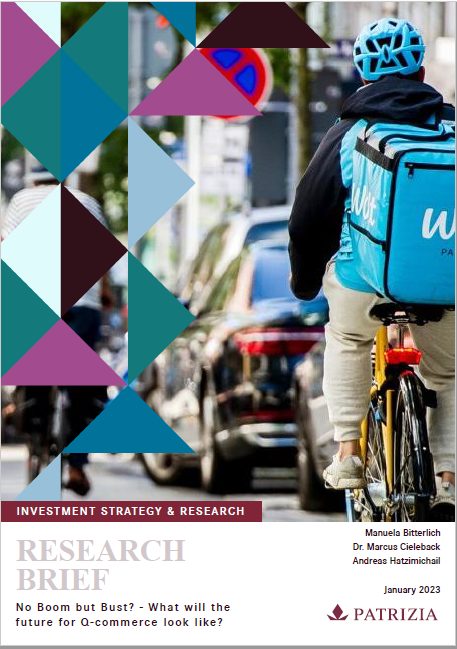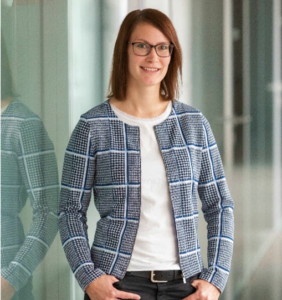No Boom but Bust? – What will the future for Q-commerce look like?
by Manuela Bitterlich, Dr. Marcus Cieleback, Andreas Hatzimichail
About the authors
Dr. Marcus Cieleback
Chief Urban Economist
Marcus focuses on risk-return based analysis and comparison of European and global real estate markets. He also develops forecasting models for commercial and residential markets facilitating the development of individual investment strategies where particular focus is given to the institutional framework of markets. Prior to joining PATRIZIA, Marcus worked for Eurohypo AG as Head of Research and for MEAG where he developed real estate investment strategies and worked on property transactions.
Marcus is a frequent speaker at international conferences, a lecturer at domestic and international universities and a member of the German Society of Property Researchers. Marcus was also a member of the INREV research Committee and is currently member of the Training & Education committee of INREV as well as the ULI European Residential Council.
Marcus holds a Ph.D. in Real Estate Finance from the University of Bayreuth. Marcus studied Economics at the University of Freiburg and London School of Economics.
Manuela Bitterlich
Associate, Investment Strategy and Research
Manuela is an Associate in the Investment Strategy and Research team at PATRIZIA, supporting mainly the DACH team with analytical material on the real estate markets. In her role she contributes to fund and transaction strategies as well as client events and publications. In addition she is part of strategy team behind PATRIZIA’S Living Cities Index. She is also involved in producing PATRIZIA’s ‘House View’, a bi-annual research-led project that is used as a guide on investment themes by fund management and transactions, with a focus on the living sectors and retail.
Before joining PATRIZIA, Manuela worked as a Statistician for a research agency in the media sector. Here she was responsible for the statistical analysis of media surveys including multivariate analysis tools like regression, cluster and factor analysis.
Manuela holds a Bachelor of Science in Statistics and a Master of Science in Statistics in Social and Economic Studies from the LMU Munich.





